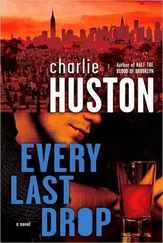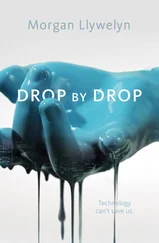Then she was out in the yard in a pair of shorts and a sweatshirt, seven forty-eight by the clock she insisted on over Sess's objections, and the morning warming toward the low forties. She watched him make a turn at the edge of the woods, then tear up along the bank of the river, turn again and come straight for her with the dogs digging at their harnesses and a whole world of dust and threshed weed gone up into the air. He did manage to stop them more or less in the yard, throwing the brake (a sort of anchor that flailed and leapt and finally dug a furrow a hundred feet long), and wearing out the heels of his boots while he roared commands and the two wheel dogs went for each other's throats in one of those ill-tempered canine disputes that seemed to erupt every five minutes throughout the day. He let go the handles and got in between the dogs, kicking and cursing, until they finally got over whatever it was and sat panting in their traces. Sess was powdered with dust and weed, his shirt was torn and both his forearms were drooling blood where the dogs had bitten him. “Hey, baby,” he smiled, “want to go for a ride? I'll take you round the world-you know what that means?”
“Don't get dirty on me, Sess.”
Then he was holding on to her, rocking her gently back and forth. “You know I wouldn't do that,” he said, breathing into her ear.
The dogs turned to look at them, ten wolfish eyes fixated on Sess's back, Lucius, in the lead, looking as if he could go out and run a hundred miles without even breathing hard. Sess had them hooked up to his training rig, a heavy narrow box of dense wet wood with three-inch aspen poles for runners and two pairs of wheels he must have scavenged from defunct wheelbarrows-or maybe children's tricycles-at the four corners. The wheels were useless. The rig weighed a ton. He just wanted to work the dogs, he told her, train them to work as a team, and to pull weight.
“I've been thinking I might take them up the trapline today,” he said, “just a little ways, to give them the sight and smell of it and to maybe cut back some of the brush and branches and whatnot. I'll be back tonight. Late, though. Real late.”
She was amazed. “With that? The whole thing'll fall apart before you go two miles.”
He didn't try to deny it. “The wheels'll have to come off, I guess-when we get into the muskeg, anyway. I'm just going to let them skid the thing till they poop out. And by the way, really boil the hell out of that piece of bear for the stew-they're worse for trichina than pigs even.”
She knew that, knew it from twenty years ago, but she didn't say anything. The bear was quartered and hanging from the poles at the bottom of the cache, they'd had the liver fried with onions for last night's dinner, and the big yellow-white chunks of its summer-laid fat were already rendered and put up in coffee cans to cool and harden.
“And you might,” he added, and it was the last thing he said to her, “you might want to keep after that hide, scrape it good and then stretch it and hang it out where it can dry.”
Later, after she'd made herself a sandwich with the leftover bread and drunk enough coffee to get her nerve ends firing, she dragged the bear's hide out to the picnic table and sat in the sun working the flesh off it with the _ulu__ Sess had given her for a birthday present. The _ulu__ was an Inuit tool, a bone handle attached to a crescent-shaped blade, and it was ideal for scraping hides, a task she guessed she would be performing pretty regularly as the winter months came on and her husband brought her the stiffened corpses of whatever he'd managed to kill out there in the secret recesses of the country. And how did she feel about that-how did she feel about this, about this stinking, flea-and-tick-ridden hide under the knife right here and now in a hurricane of flies and the blood and grease worked up under her nails and into every least crease and line of her hands so that she'd never get the smell out? She felt content. Or no: she felt irritated. This was the first time he'd left her since they'd been married, the first of a hundred times to come and a hundred times beyond that, and all he expected of her was to sit and wait for him and be damned sure the stew was simmering and the hide was scraped clean. She slapped a mosquito on her upper arm and the imprint of her hand was painted there in bear's blood. She flicked flies out of her face. Was this really what she wanted?
The _ulu__ scraped, the flies rose and settled. There wasn't a sound in the world. She worked the hide out of inertia, for lack of anything better to do, worked it in a trance, and only when the canoe appeared on the horizon did she snap out of it. She watched it coming from half a mile away, because she could only study the stippled red meat and white sinew of the hide for so long before staring off into the immensity and just dreaming, and here was this slab of aluminum riding the current in a bolt of light, two people-two women-digging at the paddles. She stood, wiped her hands on a scrap of filthy rag, tried to do something with her hair. It was Star-she could see that now-Star and Merry, dressed alike in serapes and big-brimmed rawhide hats, maneuvering the battered silver canoe as if they'd been doing it all their lives. She watched them angle toward shore and then she waved and went down to meet them.
Star sang out her name as the canoe crunched gravel and Merry sprang out to secure it. “We thought we'd come over and make your day-how does that sound?” Star called, clambering out of the canoe and hefting a half gallon of red wine like a trophy. “Girls' day out!”
Sess was gone. The bear hide was a stinking collapsed filthy welter of raw meat and insects and the cabin reeked like a slaughterhouse. Winter was waiting in the wings-it was fifty-five degrees in the sun-and already she'd begun to feel sorry for herself, begun to feel resentful and left out, and here were her friends come to rescue her. She took the jug from Star's hand, screwed off the cap and held it to her lips and let the taste of it sweeten her mouth and scour her veins. Up the hill they went, arm-in-arm-in-arm. “I can't tell you how glad I am to see you,” Pamela said.
When they got to the picnic table, Merry pulled up short. “God, what is that?” she said. “Is that a bear? A grizzly bear?” Merry was the spacey one, more than a little Gracie Allen in her-Say goodnight, Gracie-as lost and out of place in the country as anybody Pamela could conceive of. Every coot, sourdough and weekend nimrod in the Three Pup had fed her the usual horror stories about grizzlies-the way they smelled out sexual lubricants and menstruation, their power and fearlessness and the trail of dismembered corpses they left in their wake-and she backed away from the table as if the hide could come back to life and wrap her in its killing arms.
“It's a black bear. A sow. Sess shot it in the garden last night.”
“Wow. Far out. So what are you going to do, make a bear rug?”
“Of course, what do you think?” Star said, and she tipped back the jug of wine now herself, and both Pamela and Merry watched her drink, the excess running down her arm in blood-red braids. She wiped her mouth with the back of her hand and held the jug out to Pamela. “Maybe we should get some cups and try to be a little more ladylike,” she said, and they all three burst into laughter.
“A bear rug,” Merry said, after the laughter had trailed off. “That's cool, I guess, I mean, especially up here-but what about the rest of it, the whole animal that was living out there in the woods yesterday and doing nobody any harm. What about that?”
“They eat it,” Star said.
“Don't,” Merry said, and her eyes jumped from Star to Pamela and back again.
“Right, Pamela?”
She just nodded, because she was trying to maneuver the big jug of wine up to her lips again, and to hell with it, to hell with everything, really, that was the way she was feeling.
Читать дальше












